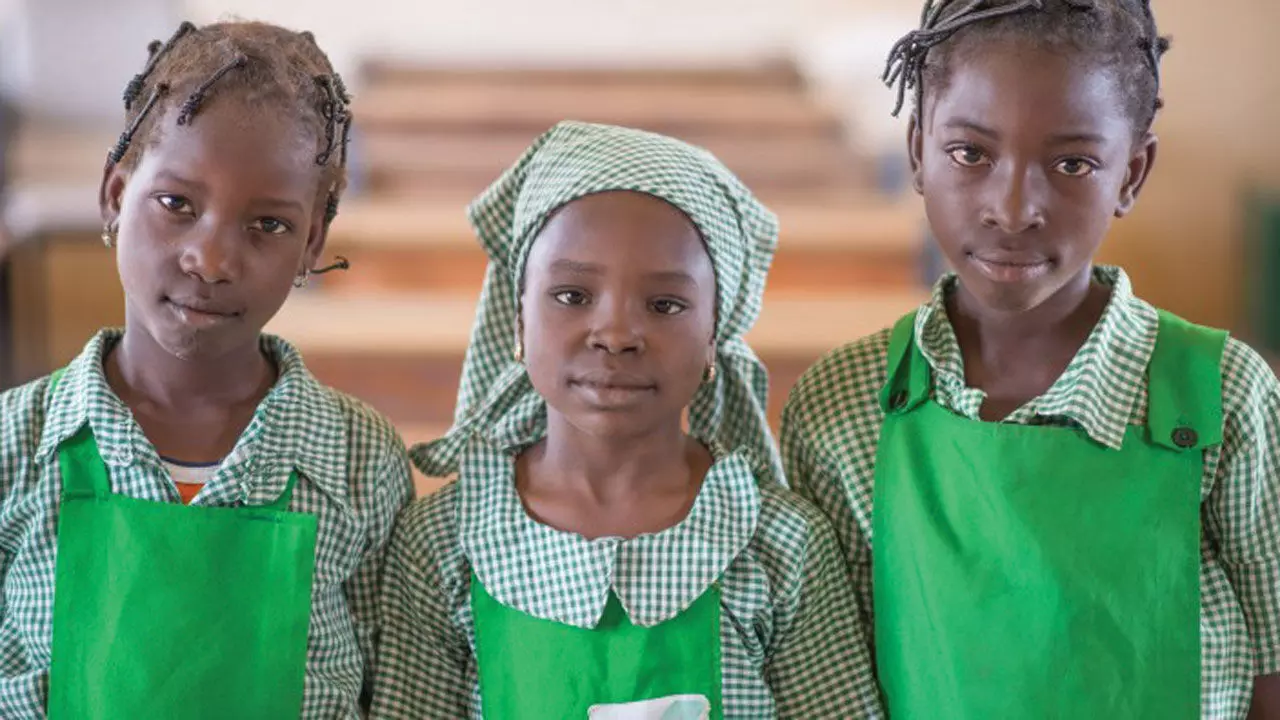- Home
- /
- Features/Spotlight
- /
- Girl child education...
Girl child education as poverty alleviation agent

Every day many girls face barriers to education caused by cultural norms, practices and household poverty.
In most instances in Nigeria, where the household income is low, the tendency is for the boy child to be in school while the girl child is either married off or compelled to help her parents in the farm and house chores.
Citing a UNESCO report, the World Bank says around the world, 129 million girls are out of school, including 32 million of primary school age, and 97 million of secondary school age.
Bringing the figures to Nigeria, UNICEF estimates that over 60 per cent of 10 million out of school children in the country are girls, one of the highest in the world.
The report also indicates that girls' access to basic education, especially in northern states, has remained a low recording as few as 20 per cent of women in the North West and North East being illiterates and having not attended school at all.
Curiously, girl child education is enshrined not only in Nigeria 1999 Constitution but also in the Child's Rights Act of 1993.
"In our circular world today and speaking legally, the act of discrimination against female is totally against the constitutional provision of Nigeria.
"Once you are a Nigerian you are a human being and entitled to all the benefits that are accorded to every Nigerian", says Mr Shadrach Osiaje, a lawyer.
Against this background, experts say that Nigeria's quest for poverty alleviation is in danger of remaining a mirage if the challenge of girl child education is not urgently addressed.
UNESCO says many countries such as Pakistan women are already contributing to economic growth and poverty alleviation.
In the agency's Global Education Monitoring (GEM) report for 2021 said that "in Pakistan, working women with high levels of literacy skills earned 95 per cent more than women with weak or no literacy skills, whereas the differential was only 33 per cent among men.
"Educated women are empowered to take a greater economic role in their families and communities, and they tend to reinvest 90 per cent of what they earn into their families".
Miss Joy Edwin, a graduate of university of Nigeria Nsukka, said being educated had empowered her to earn good income and contribute meaningfully to meet her family's basic needs.
She said education has also equipped her with the skills to cope with challenges of life, including knowing her rights and responsibilities.
"As a girl, being educated has made me informed about different aspects of life. This is the 21st century and girl child education should be taken seriously because we can achieve great things and help in developing Nigeria," she said.
Mr Augustine Ugwu a teacher at Girls Secondary School, Aku, Nasarawa said that girl child education not only empowers girls, but has one of the highest returns on investment.
He said an educated woman could contribute more to breaking the cycle of poverty, for instance, by ensuring that her female children avoided early marriage and its associated challenges.
"Children of educated women are more likely to go to school. This will have a multiplier effect on education and poverty reduction for their families," he said.
Mrs Funmilayo Makende, a teacher with FCT Universal Basic Education Board said in line with the slogan 'educate the girl, educate the nation', educated girls not only make good citizens but also become mothers who raise law abiding citizens.
"It is easier for women to impact on the lives of their children when they are educated, they teach them on how to relate with people, impact on their social and political lives.
"Most children are affected positively or negatively by the kind of mothers they have. When the girl child is educated, she will most likely have a positive impact on the lives of her offspring", she said.
Even religions support the argument in favour of educating the girl child. As posited by Malam Dalhatu Ahmed, Chief Imam of News Agency of Nigeria Mosque said that in Islam encourages pursuit of knowledge irrespective of gender.
"The girl child education is a general concept that will benefit the society because as long as girls are educated, the whole society will be set towards the reward or end result of it.
"When you train a male child, you train him alone but when you train a female child you train a society.
"Girl child education is the best for the society, we have hope that the society will change drastically with the female education rather than the male child education alone," Dalhatu said.
Mr Emmanuel Bolaji, a pastor in Redeem Christian Church of God, agrees with Dalhatu, saying currently, girl child education is endorsed by the society and even the Christian body. Some churches like Redeem have schools where children, both male and female can attend without segregation.
"I plead with the government, society, church, parents and other bodies to always promote the education of the girl child because it will reduce poverty and promote development," he said.
Given the massive contribution of the educated girl children to the economic growth wellbeing of the society, it is important that all stakeholders should pool their resources to accord her quality education.




